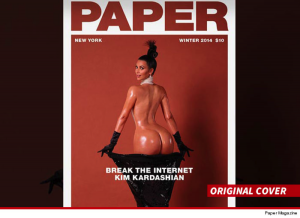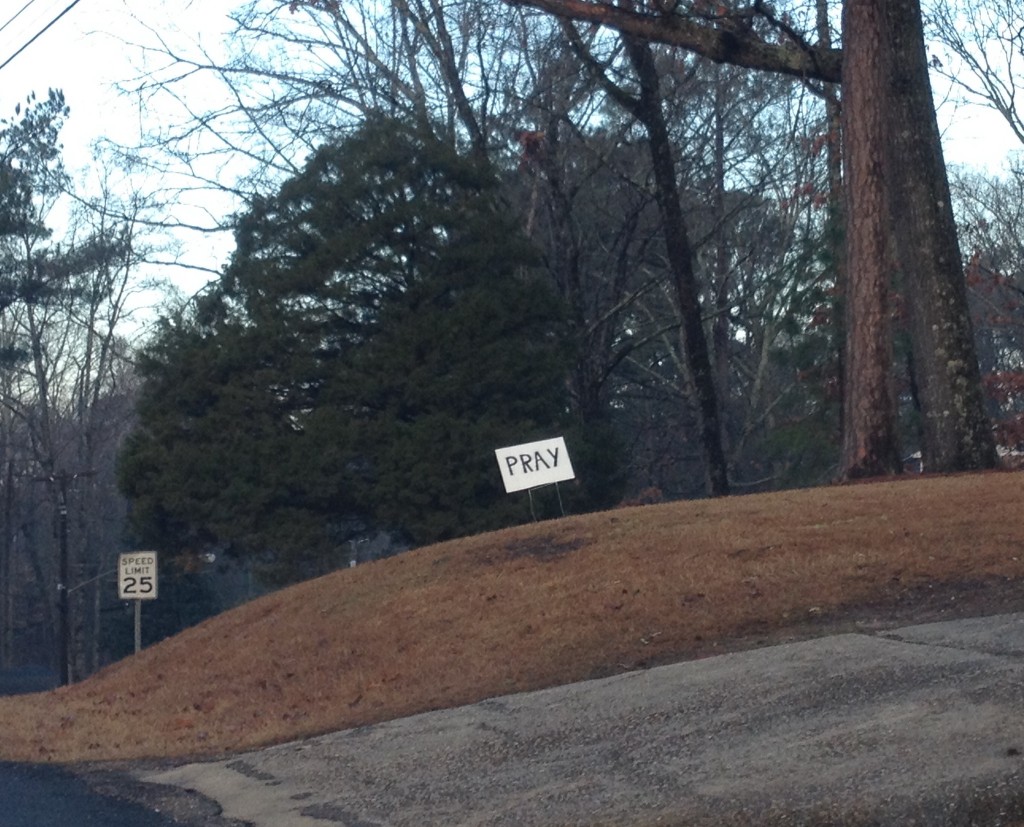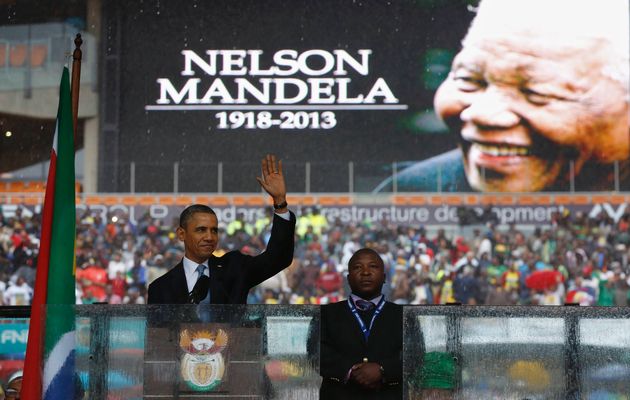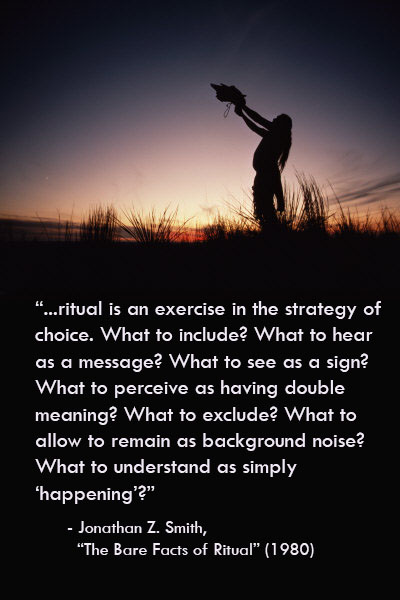 As I’m sure we’ve all heard by now, Kim Kardashian’s backside, displayed for the world’s consumption and viewing pleasure (or not) on the front cover of Paper Magazine, “broke the Internet” just a short while ago and has since caused a flurry of debate, shock, praise, and disbelief. Add to that a big-booty praise of “#allday” from her beloved husband, Kanye West which received thousands of Retweets. I’ll leave it for those entering into the debate with interests and intentions of conflict management and moral maintenance to weigh in on what Kim’s big ‘ole butt plastered on the Internet for the world to view and deconstruct means for progress, freedom, justice, feminism, America, motherhood, identity politics, women, sexuality, Kanye, blackness, and much, much more. Amazing how a bare ass on a magazine can speak to and says something about such a *****wide***** variety of topics!
As I’m sure we’ve all heard by now, Kim Kardashian’s backside, displayed for the world’s consumption and viewing pleasure (or not) on the front cover of Paper Magazine, “broke the Internet” just a short while ago and has since caused a flurry of debate, shock, praise, and disbelief. Add to that a big-booty praise of “#allday” from her beloved husband, Kanye West which received thousands of Retweets. I’ll leave it for those entering into the debate with interests and intentions of conflict management and moral maintenance to weigh in on what Kim’s big ‘ole butt plastered on the Internet for the world to view and deconstruct means for progress, freedom, justice, feminism, America, motherhood, identity politics, women, sexuality, Kanye, blackness, and much, much more. Amazing how a bare ass on a magazine can speak to and says something about such a *****wide***** variety of topics!
Something more interesting — and fascinating (in my opinion) has caught my attention about the unfolding conversation and ensuing public debate and discourse — that has seemingly little to do with the perceived “object” of study here. I’m more curious about how all of these emerging grand claims to truth (seen in what follows below) sparked by Kim K’s naked badonkadonk are helping it to break the Internet and make possible the Sui Generis booty she (and the world) thinks is so NOT-unique, or, not unique enough to warrant all of the hype. One is not born a big booty, rather, one becomes a big booty, so it seems. We have manufactured the Kardashian booty that we so love to hate and hate to love. Continue reading “Manufacturing Booty: On How We Stake Our Claims”
What Gang Do You Claim?
 In December of 2013, Russell McCutcheon penned a blog piece about the sign language interpreter at Nelson Mandela’s memorial service who was caught signing what many regarded as gibberish. McCutcheon’s post made two principle points: First, all signs are arbitrary and rely on agreed upon codes, policing and assumptions between those doing the communicating for any communication or “meaning” to be enacted. Second, the backlash faced by the interpreter demonstrates that “just because something is made up… does not mean that it doesn’t have consequences, doesn’t have effect.”
In December of 2013, Russell McCutcheon penned a blog piece about the sign language interpreter at Nelson Mandela’s memorial service who was caught signing what many regarded as gibberish. McCutcheon’s post made two principle points: First, all signs are arbitrary and rely on agreed upon codes, policing and assumptions between those doing the communicating for any communication or “meaning” to be enacted. Second, the backlash faced by the interpreter demonstrates that “just because something is made up… does not mean that it doesn’t have consequences, doesn’t have effect.”
If you haven’t heard, a few days ago Minneapolis mayor Betsy Hodges claimed her allegiance to a local area gang. Or so an intensely politically problematic and pedagogically potent news report from KSTP 5 Eyewitness News (out of Saint Paul, MN) declared. Continue reading “What Gang Do You Claim?”
The Dangers of Accepting Who You Aren’t
 Have you caught the recent stories online about how political or culturally conservative groups are claiming that evil, pro-gay messages are being inculcated in innocent children by the movie “Frozen”? Continue reading “The Dangers of Accepting Who You Aren’t”
Have you caught the recent stories online about how political or culturally conservative groups are claiming that evil, pro-gay messages are being inculcated in innocent children by the movie “Frozen”? Continue reading “The Dangers of Accepting Who You Aren’t”
Size Doesn’t Matter
 On my way home from walking my dog I sometimes pass a house and each time I pass by it occurs to me to snap a pic. Which I finally did the other day.
On my way home from walking my dog I sometimes pass a house and each time I pass by it occurs to me to snap a pic. Which I finally did the other day.
What Day is it Today…?
 Yesterday I posted on the trouble when people think that identities somehow predate the classification systems that, as I see it, actually make them possible to begin with — it’s the mark of a pretty conservative approach inasmuch as it quite literally conserves and reinforces the very thing that we, as scholars, could instead be theorizing. It’s likely a normal part of identity creation (i.e., identification) but for those who think they’re studying how identity works, rather than just creating it, inhabiting it, celebrating it, or criticizing it, well, we likely need to employ a different approach.
Yesterday I posted on the trouble when people think that identities somehow predate the classification systems that, as I see it, actually make them possible to begin with — it’s the mark of a pretty conservative approach inasmuch as it quite literally conserves and reinforces the very thing that we, as scholars, could instead be theorizing. It’s likely a normal part of identity creation (i.e., identification) but for those who think they’re studying how identity works, rather than just creating it, inhabiting it, celebrating it, or criticizing it, well, we likely need to employ a different approach.
But don’t just take my word for it. Continue reading “What Day is it Today…?”
Signs, Signs, Everywhere a Sign
 I assume you’ve heard the reaction to the sign language interpreter at the Nelson Mandela memorial a few days ago — the fellow who wasn’t signing anything meaningful. It’s a great example, really, of how signification works. Continue reading “Signs, Signs, Everywhere a Sign”
I assume you’ve heard the reaction to the sign language interpreter at the Nelson Mandela memorial a few days ago — the fellow who wasn’t signing anything meaningful. It’s a great example, really, of how signification works. Continue reading “Signs, Signs, Everywhere a Sign”
On Ritual
Finding the Edges of a World Without End

If my previous post made any sense then scholars ought to cease looking for meaning, identity, or significance in the objects studied (like the holiness of the altar or debating which Muslim is the proper sort of Muslim). Rather than doing interpretive, let alone normative, studies we’ll instead examine the usually taken-for-granted systems that groups of people use to make sense of their world–to make the world as it happens to be into a manageable world that, if done “properly,” more than likely appears to all of us as if it always has been that way and therefore ought to continue being that way. Continue reading “Finding the Edges of a World Without End”
Regulating Significance
 Perhaps one of the more important articles demonstrating, in a practical situation (the production and sales of so-called Oriental carpets), how discourses on authenticity are ways of managing an otherwise unregulated economy of signification (both meaning and value), is Brian Spooner‘s long but rich essay in Arjun Appadurai’s edited volume, The Social Life of Things: Commodities in Cultural Perspective (Cambridge University Press, 1986: 195-235).
Perhaps one of the more important articles demonstrating, in a practical situation (the production and sales of so-called Oriental carpets), how discourses on authenticity are ways of managing an otherwise unregulated economy of signification (both meaning and value), is Brian Spooner‘s long but rich essay in Arjun Appadurai’s edited volume, The Social Life of Things: Commodities in Cultural Perspective (Cambridge University Press, 1986: 195-235).

 Read
Read